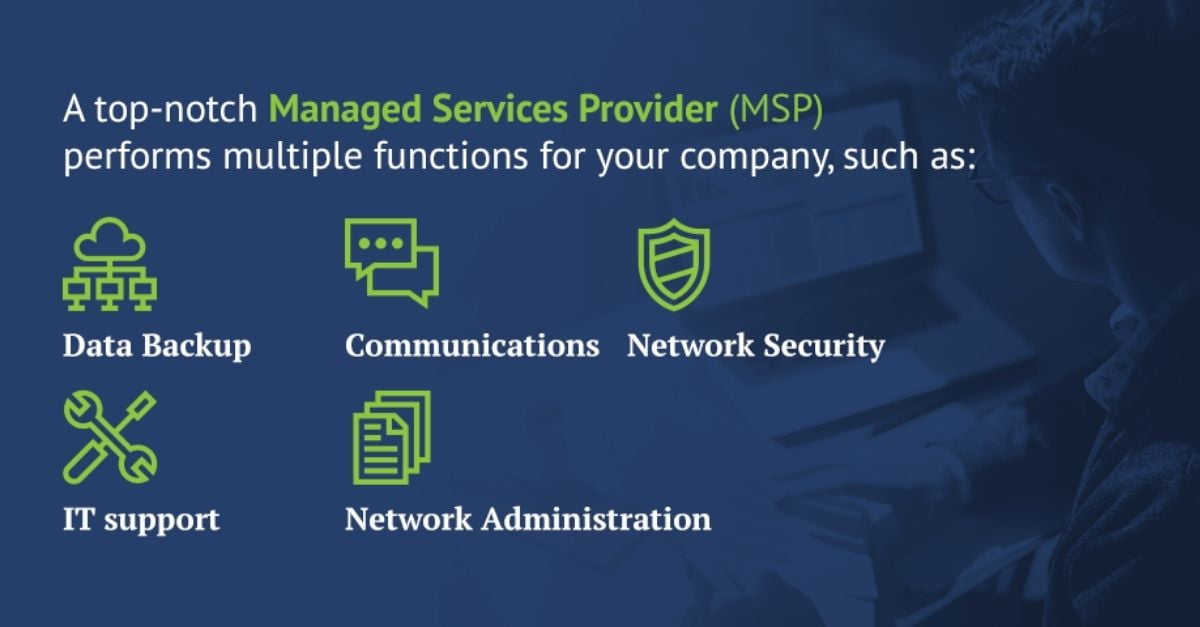What is Cloud Computing and How Can It Benefit Your Business?
A guide on cloud computing and its benefits for the modern enterprise
In the early 2000s, the term “the cloud” was introduced, and it sounded pretty abstract. The notion of accessing computing resources from a location other than an on-premise IT infrastructure was straight out of a science fiction novel. However, the impact was far more significant and has forever transformed technology and how we conduct business.

What is Cloud Computing?
Cloud computing refers to delivering computing services over the Internet, including servers, storage, databases, networking, software, analytics, and intelligence. This allows for faster innovation, flexible resources, and economies of scale.
By outsourcing their resources, companies can access computational assets as needed without purchasing and maintaining a physical on-premise IT infrastructure. This offers flexible resources, faster innovation, and economies of scale. For most companies, migrating to the cloud is directly linked to modernizing their data and IT infrastructure.
Types of Cloud Computing
There are three different types of cloud computing: public, private, and hybrid.
- Public cloud computing is the services offered by third-party providers over the Internet. These services are available for anyone who wants to use them and are typically paid for on a pay-per-use basis.
- Private cloud computing is a cloud infrastructure dedicated only to a single organization. It is usually managed and hosted by the organization or a third-party provider.
- On the other hand, hybrid cloud computing combines both public and private cloud services, allowing companies to benefit from both benefits.
Advantages of Cloud Computing for Businesses
Now that we understand cloud computing better, let’s explore the advantages it offers businesses.
Cost Saving
One of the most important advantages of cloud computing for businesses is cost savings. Cloud computing can save companies money by eliminating costly hardware and infrastructure costs. Instead, they can access the resources they need on-demand, paying only for what they use.
This pay-per-use model saves businesses money on hardware, maintenance, and IT staff, making it a cost-effective solution for businesses of all sizes.
Scalability
Another major advantage of cloud computing is scalability. With traditional on-premise solutions, businesses must invest in additional hardware and infrastructure to accommodate growth. However, with cloud computing, companies can quickly scale up or down their resources as needed without extra investments.
Scalability is particularly helpful for organizations with fluctuating resource needs, such as seasonal businesses or those experiencing rapid growth.
Flexibility and Accessibility
Cloud computing is a crucial tool businesses can use to keep pace in today’s fast-paced business landscape. Companies can access their resources from anywhere with an internet connection, providing flexibility and accessibility. This feature also enables remote work and collaboration, which is especially beneficial today. Cloud computing allows organizations to rapidly adapt to market changes and customer demands, granting them a competitive edge.
Secure Cloud Technologies
Organizations are concerned about the security of their data and resources while using technology. With the advent of cloud computing, companies can now be more confident about the security of their data.
Organizations can now protect their data from loss due to hardware failure or natural disasters more easily. This is because cloud service providers have backup and disaster recovery plans. These plans ensure that companies can quickly recover their data in an emergency.
Enterprise Cloud Computing
Cloud computing is beneficial not only for small businesses but also for larger enterprises. By adopting enterprise cloud computing, companies can access advanced technologies and resources that could be too costly to implement in-house.
With the help of enterprise cloud computing, businesses can leverage advanced analytics, machine learning, and artificial intelligence to optimize their operations and stay competitive.
Enterprise Cloud Computing vs Cloud Computing?
Enterprise cloud computing differs from standard cloud computing because it uses public and private clouds and distributed cloud infrastructure. This infrastructure consists of public cloud resources located in multiple locations, and it offers a unified IT environment that is centrally managed and controlled.
How does Enterprise Cloud Computing work?
In a traditional computing setup, servers and storage are kept on-site in a physical data center. However, in cloud computing, a vast collection of computing resources is combined and managed by cloud providers, and they can be located anywhere.
Virtualization technologies allow the creation of virtual machines (VMs) within available resources. This enables a single physical server to operate multiple machines with different operating systems and applications. Customers can access these resources through an internet connection. This results in efficient resource utilization and improved scalability, enabling customers to access resources on demand anywhere in the world.
Here are some factors to consider when making your selection. Your business:
- Security measures: Ensure the provider has robust security measures to protect your data.
- Scalability: Choose a provider with flexible and scalable solutions to accommodate your business’s growth.
- Reliability: Look for a provider with a proven reliability and uptime track record.
- Support: Ensuring reliable customer support to address any issues that may arise.
- Cost: Consider the cost of the services and compare them to other providers to ensure you get the best value.
Real-World Examples of Cloud Computing in Business
Cloud computing is being used by many businesses to improve their operations. Here are some real-world examples of its usage and benefits.
Netflix
Netflix is an excellent example of a business that utilizes cloud computing effectively. The streaming service giant employs Amazon Web Services (AWS) to store and provide its extensive content library to millions of users worldwide.
With cloud computing, Netflix can quickly expand its resources to manage the demands of its expanding user base without the need for costly investment in hardware and infrastructure.
Airbnb
Airbnb, a popular platform for vacation rentals, relies on cloud computing to power its operations. The company stores and manages its vast listings database using Amazon Web Services (AWS) and effortlessly handles the high daily traffic volume.
Cloud computing allows Airbnb to quickly scale its resources during peak periods, such as holidays and special events, without disrupting its services.
Cloud computing has become a primary tool for businesses of all sizes. It offers many benefits and advantages, including cost savings, scalability, flexibility, and accessibility.
Cloud computing has transformed business operations, enabling organizations to stay ahead and achieve the goals by leveraging the latest cloud technology solutions and selecting the right cloud services provider.
Therefore, if you haven’t already, it’s time to embrace cloud computing and take your business to new heights of success.


